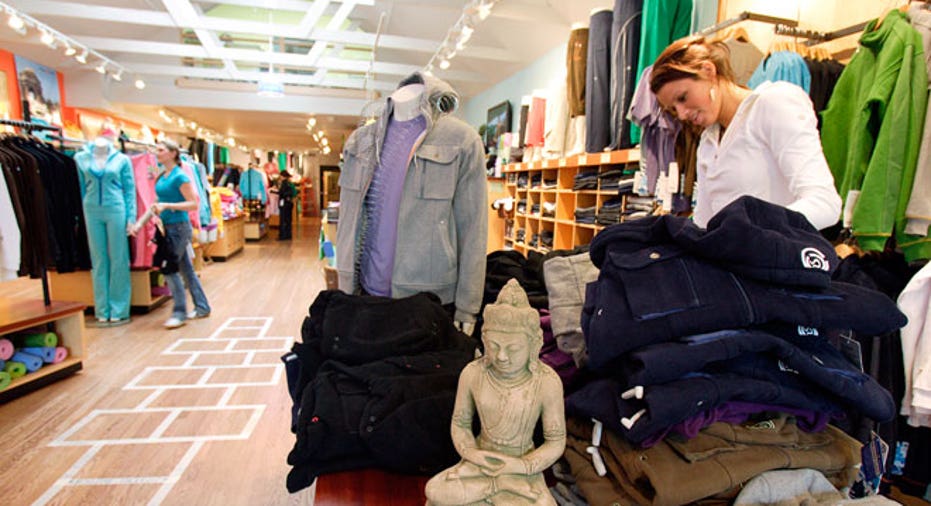Lululemon's 1Q Profit Dives 60%, CFO to retire

Shares of Lululemon (NASDAQ:LULU) fell 15% on Thursday after its first-quarter profit plunged 60% and the yogawear retailer lowered its full-year outlook.
The Canadian company, which is still reeling from a recall of too-sheer pants last year, also announced the planned retirement of finance head John Currie, marking the third top executive to leave the company within a year.
Currie plans to leave by the end of the fiscal year (early 2015). Lululemon, which re-elected chairman Michael Casey on Wednesday, said it plans to work with an executive search firm to find a replacement.
The company has been facing painful PR headwinds that sparked in early 2013 from a massive recall of its Luon yoga pants. That led to the departure of former CEO Christine Day and later of founder and ex-chairman Chip Wilson.
Lululemon now sees full-year earnings in the range of $1.50 to $1.55 a share, below the $1.89 a share forecast by analysts in a Thomson Reuters poll. It’s predicting sales between $1.77 billion and $1.8 billion, in line with the consensus view of $1.8 billion.
For the second quarter, it forecasts earnings per share of between 28 cents and 30 cents on sales of $375 million to $380 million. That is below the 36 cents per share and $387.2 million in revenue analysts are forecasting.
"2014 is very much a transitional year for Lululemon, and we are on track with the improvements we have set out to achieve,” CEO Laurent Potdevin said in a statement. “Despite a reduced outlook, I am confident that the work we are doing today will only enhance our premium positioning.”
Shares of Lululemon fell 15.3% to $37.55 in recent trade.
In its latest quarter, Lululemon reported net income of $18.98 million, or 13 cents a share, compared with a year-earlier profit of $47.3 million, or 33 cents.
Excluding a one-time tax adjustment, Lululemon said it earned 34 cents, topping average analyst estimates in a Thomson Reuters poll by two pennies.
Revenue for the three-month period ended May 4 grew 11% to $384.6 million from $345.8 million a year ago, and just beat the Street’s view of $381.2 million. Same-store sales, a key growth metric of sales at stores open longer than a year, increased 1%.
Meanwhile, its board on Thursday approved of a stock buyback plan of up to $450 million.



















